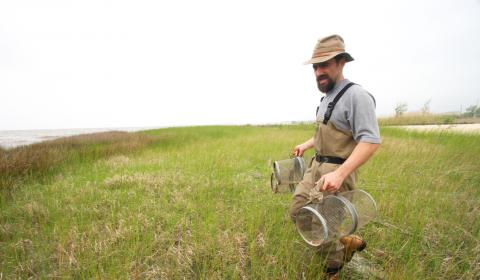Evolution and Adaptation Blog Posts
Species Resilience and Science Advocacy:
Genetics, climate change, and conservation become highly intertwined in Dr. Andrew Whitehead’s lab. Although he works on a variety of research endeavors, he mainly focuses on how wild species respond to human-induced stress, such as the effects of climate change, and how that may affect an individual organism’s progeny. Essentially, Dr. Whitehead attempts to monitor how climate change and pollution will shape the genetic makeup of multiple generations.

